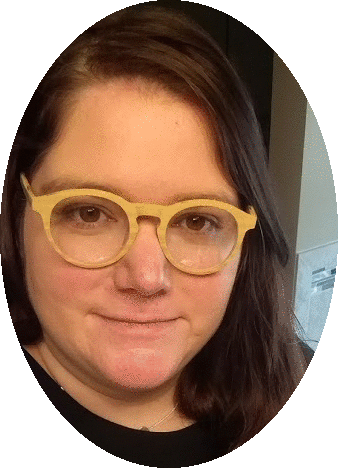7 Questions with Tori Whitaker
All books are exciting — for people like me, at least — but there is something about a debut novel that is extra special. Maybe it’s the potential of plucking a diamond from the rough. Or, perhaps, the possibility of finding a new must-read author.
In reading Millicent Glenn’s Last Wish I feel like I’ve found both. It’s a shockingly meticulously crafted debut from an author to watch.
Get to know author Tori Whitaker a bit better before diving into her debut novel by checking out her answers to our 7 questions.
1. What's your favorite drink?
A classic whiskey sour is my favorite, hands down.
My husband and I have sampled whiskey sours at craft cocktail bars around the country, and the best we have found was made with good Kentucky bourbon, fresh lemon and lime juice, a splash of Grand Mariner, simple syrup, egg whites, bitters, and a Luxurdo cherry. There's a trick to shaking it just right, too.
All during the pandemic, every Friday has been stay-in date night for us, and my husband has mastered the drink at home! I like mine served in a long-stemmed coupe without ice.
2. Where and when do you write?
I'm not the kind of author who can write at a coffee shop or with a laptop while riding in a car on a trip. I must be at my home computer--no music or anything playing either.
Because I have a full-time job, I write during evenings, weekends, and staycation.
When I use vacation time, I can really get in a zone for nine straight days--including the weekends before and after--and I crank out drafts or revisions for 10-14 hours a day, every day.
3. What does your prewriting process look like?
Prewriting involves lots of research, and that's one reason I prefer writing in my home office. I have shelves of books that cover everything from the broad historical period to detailed things, such as maternity care or Cincinnati.
Before I go into a "lock down staycation" week to write, I compile a list of all I want to accomplish. This might include the exact chapters that need revised or identifying specific new scenes to draft.
I like scratching items off when I'm done. I am a planner. I have a rough outline of the book going in, although it changes a lot by the end.
One thing I've discovered is when I wake up in the morning, if I allow myself to ponder the story a bit before I open my eyes to check emails or whatever, a solution to a story problem often comes to me.
4. What's up next?
I am writing another dual timeline novel, this time set during modern day and Prohibition instead of the 1950s. But it's not far enough along to give more details!
5. At its core, Millicent Glenn’s Last Wish is about a family secret and the impact that this secret has on not just the person keeping it, but ultimately the entire family. What advice would you give to someone who is carrying the weight of a family secret in real life?
Hmm. That's a tough one.
Early in my career, I worked in a nursing home, not as a caregiver but in the public relations capacity. I spent a good deal of time with the residents, such as having lunch with them. I was surprised at how they sometimes brought up painful things from long ago in their lives. It could be something mean someone had done to them as a teen, or a lie for which they'd always feared discovery.
I don't know how to advise others on this issue, but I can say that I remembered these times as I crafted my novel . . . this need for the elderly to reveal secrets that they'd carried for decades. Maybe in some cases it's easier for people to unload their pain to someone other than family, but it still has come to out?
6. In your novel, you jump back and forth between 2015 and the 1950s. Given a choice, which of these two time periods would you want to live in and why?
Wow. My first instinct is to say the 1950s. Isn't that weird? Maybe it's because I was actually born in the late fifties?
But then I think of all the advances women have achieved in the last 60 years, and I'd want those opportunities (and more) for my own granddaughter.
7. You’re a member of a large family much like the one depicted in your novel. What is the best thing about being part of such a large, multi-generational clan?
Yes, my family has had five living generations twice in my lifetime. We have four living generations presently.
When I was growing up or when my sons were young, the best part was that we had so many grandparents when we gathered for Christmas and other holidays. I always marveled at how, even when my boys were like three and six years old, they never got confused with so many names that sounded alike but really weren't, names like Mawpaw and Pawpaw, and Poppy and Memaw.
We were close-knit, so everyone knew exactly who everyone was.
Check out this debut from Tori Whitaker
* Drink. Read. Repeat. is a participant in the Amazon Services LLC Associates Program, an affiliate advertising program designed to provide a means for sites to earn advertising fees by advertising and linking to Amazon.com. As an associate, we may earn commissions, at no cost to you, from qualifying purchases on Amazon.com






